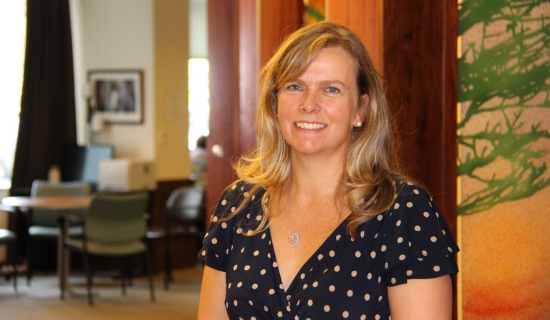Ideas to Innovation, Research to Realization: The Journey of eConsultBASE™
11/18/2020
Research always leads to knowledge, but how often does it lead to change? First launched in 2010 as a small pilot program in the Ottawa region, the Champlain BASE™ (Building Access to Specialists through eConsultation) eConsult service has been through a decade long journey, from idea to innovation, and from research to realization.
The service, a secure web-based tool that allows physicians and nurse practitioners timely access to specialist advice, was founded when Dr. Clare Liddy and Dr. Erin Keely noticed that many of their patients were faced with long wait times. Waiting on a referral to a specialist could sometimes take months or up to a year. Though they faced challenges within health care, where privacy and policy obligations can become a deterrent to innovation, Liddy and Keely were determined to develop what was, in principle, a simple solution to a common problem.
“Initially, we did not have any idea that we would create an eConsult system,” recalls Liddy, “our initial conversation over a cup of coffee together was all about the frustrations with the wait times and inefficiencies with specialist referrals. Maintaining focus on the main problem (poor access to specialist) while developing this innovation was a key enabler of our success.”
Compared to the original pilot of only five specialty groups, over 100 health care specialty groups are now available through eConsultBASE™ in Ontario alone, and growing from 77 patients served in the 16-month pilot, by August 2020 eConsult had served over 70,000 patients. What’s talked about less is how that magnitude of growth has come from the consistent dedication of the eConsultBASE™ founders and significant financial investment in both the research and development of the now well-adopted innovation. Liddy has received $3.4 million in funding related to eConsult, of which $1.1 million from the CIHR was for spreading and scaling the service in chronic pain alone across four provinces. Without dedication and dollars, innovation faces steep barriers to adoption, even when the research supports implementation.

What the ongoing implementation and research has continued to show is how the platform has been effective, not just for patients who are receiving care faster and avoiding referrals, but for the health care system itself. Both primary care providers and specialists have consistently reported satisfaction and maintained timeliness of response, despite the growth of the service. That value has been seen by key partners at the provincial and national level, allowing for successful expansion. Most recently, the service has been recommended for use in long-term care homes, as reported in Ontario’s Ministry of Long-Term Care study on staffing in the sector.
“In the three years it has been in operation [in long-term care], this service has increased access to specialist advice (an average response of two days), improved care coordination and collaboration between clinicians, avoided unnecessary resident transfers to acute care settings, and lowered costs to homes, residents, and caregivers,” the study outlined on the service’s implementation in 31 long-term care homes since 2017, through a collaboration between the Ontario eConsult Centre of Excellence, the Bruyère Health Research Institute, and the Champlain BASE™ eConsult service, and Ontario Centres for Learning, Research and Innovation in Long-Term Care (CLRI), who were instrumental in facilitating the introduction into long-term care in the province.
With each new patient population, geographic region, or specialist onboarded to the service, the research continues to be a vital part of the process. Evaluating whether or not the innovation is successful, and how it is successful, allows the service to build upon sound evidence and best practices and effectively scale nationwide.
“We were persistent in our messaging as we sought to spread and scale this model,” Liddy added. “If a region had an access issues, then we presented eConsult as a possible solution. As clinicians, we sought out clinical champions to help spread the word.”
eConsultBASE™ is a testament to how an idea can yield innovation, and how research can drive implementation. Breaking through from research to implementation has meant real world impact in health care: reducing wait times for specialist advice, transforming the referral-consultation paradigm, increasing equity in health care access, and increasing education and collaboration among care providers. The advent of the service has helped patients avoid unnecessary physical appointments, which continues to be of particular importance during the COVID-19 pandemic.
With every iteration and improvement, the health care system still shows its gaps and needs, research informs the evolving best practices, and innovation and implementation move care forward for the better. The cycle repeats. Widespread implementation of research and innovation has notoriously been a challenge in and out of the health care sector, but the level of adoption the eConsultBASE™ model has seen is the success story researchers and innovators aspire to, with some type of eConsult service established or in development in nine provinces and territories. Champlain eConsultBASE™ now has over 1,700 registered primary care providers and over 250 registered specialists, with over 600 of those primary care providers requesting three or more consultations per month and over 200 specialists delivering three of more consultations per month.
Its success has won the service The Change Foundation’s Future Innovator Award for its most recent implementation in long-term care spaces and it was named a Leading Practice by Health Standards Ontario. Services using this model continue to be adopted throughout Canada’s health care system, with the service established or in development in nine provinces and territories by the end of 2019, and the eConsultBASE™ service continues its journey from pilot to provincial success, and hopefully with the ongoing opportunities to scale, from local to global.
*
This work is supported in part with funding from the Government of Ontario through the Ontario Centres for Learning, Research and Innovation in Long-Term Care hosted at Bruyère. The views expressed herein do not necessarily reflect the views of the province.